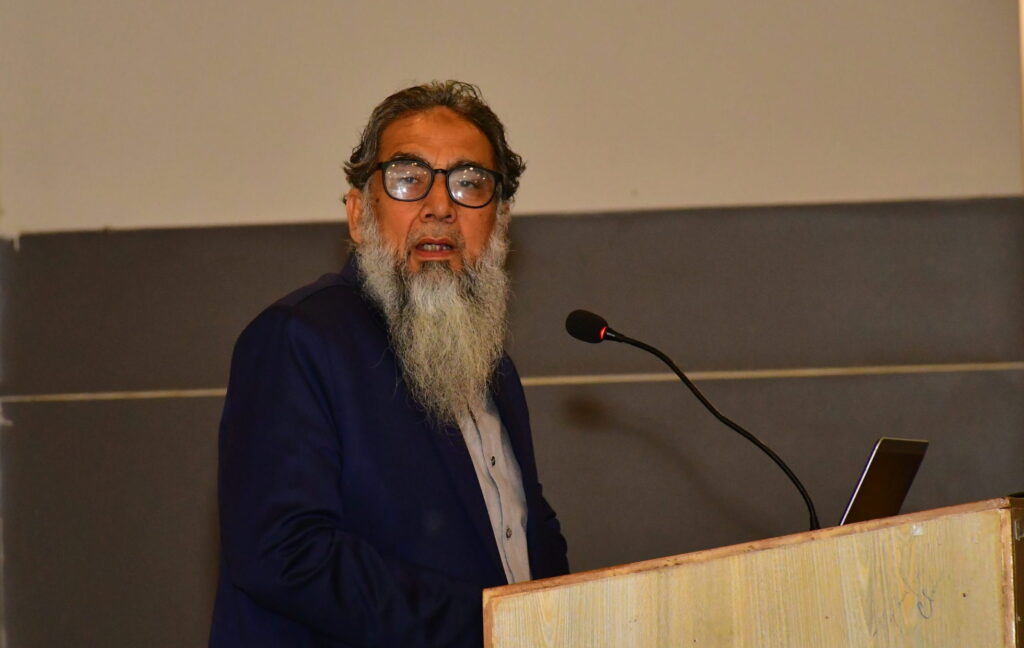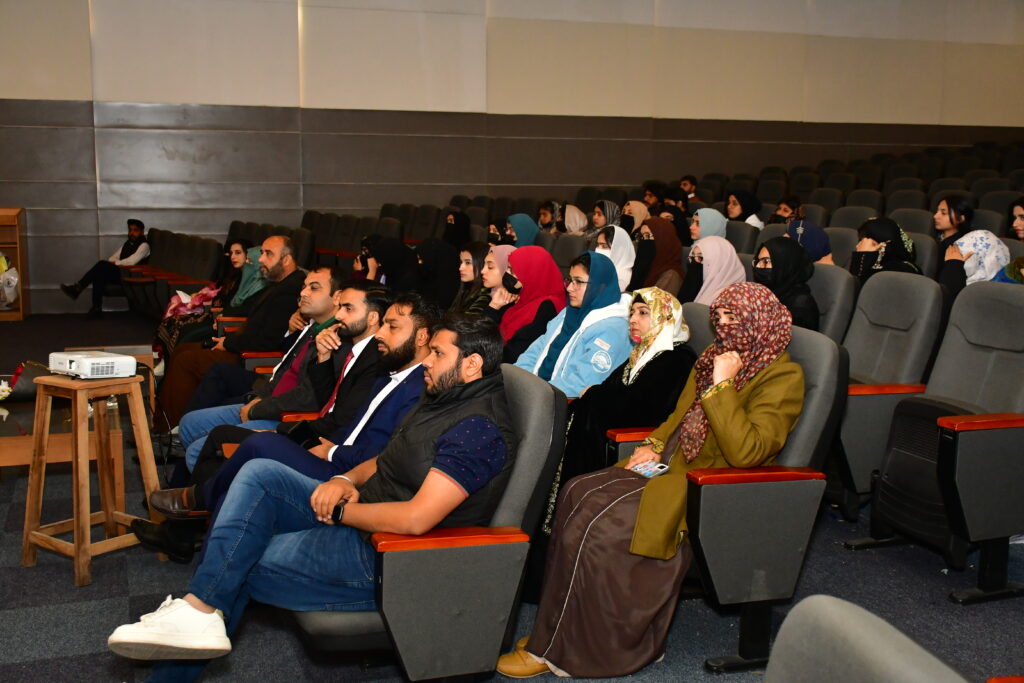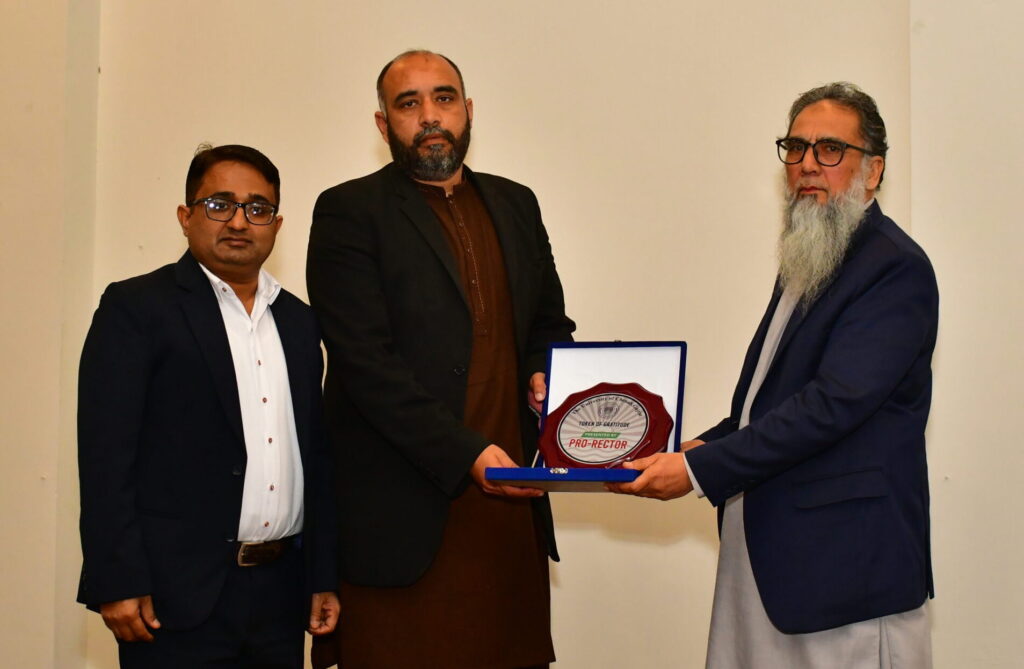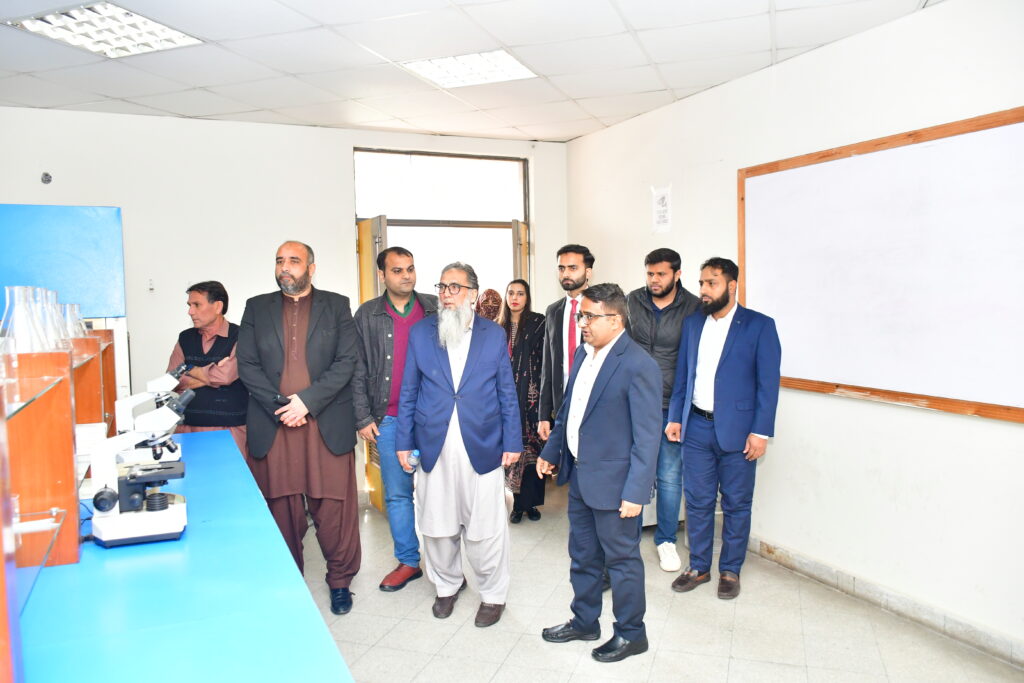NAEAC Accreditation: A Milestone for Academic Excellence
Ensuring quality education and academic excellence is a core objective at The University of Chenab (UChenab). As a result, the recent NAEAC Accreditation visit marked a significant step in the evaluation process for the Human Nutrition and Dietetics (Allied Health Sciences) Department.
Dr. Abdul Ghaffar, Secretary of the National Agriculture Education Accreditation Council (NAEAC) Pakistan, visited UChenab to assess its standards. He examined research facilities, educational quality, and the practical training environment. This accreditation process maintains high academic standards and fosters continuous improvement.

NAEAC Accreditation: Evaluating Educational Infrastructure

Dr. Abdul Ghaffar’s visit included an extensive tour of UChenab’s academic and research infrastructure. His assessment included medical labs, research centers, and the library. Additionally, he observed the campus environment to analyze resources for students and faculty. His feedback highlighted areas for improvement, reinforcing UChenab’s commitment to educational excellence.
Campus Facilities and Practical Learning
Equally important, during the visit, the emphasis was placed on the importance of practical learning. The well-equipped medical and research laboratories offer students hands-on experience in Human Nutrition and Dietetics. Furthermore, the availability of modern technology and academic resources was commended, further highlighting UChenab’s dedication to fostering a robust learning environment.
Library and Research Support
A key highlight of the visit was the inspection of UChenab’s central library, which provides extensive academic resources, research journals, and digital databases. The library serves as a vital support system for students and faculty engaged in research. UChenab ensures that they have access to the latest scientific knowledge and publications.

NAEAC Accreditation: Expert Insights from Dr. Abdul Ghaffar
One of the key highlights of the NAEAC Accreditation visit was the insightful session conducted by Dr. Abdul Ghaffar. Held in the university auditorium, this interactive session focused on educational quality. Furthermore, the session emphasised on program evaluation, and future prospects in nutrition and health sciences. Faculty members and students actively participated, engaging in discussions that explored the evolving landscape of academic accreditation.
The Role of Accreditation in Academic Growth

Dr. Abdul Ghaffar emphasized the role of accreditation in strengthening academic programs. By adhering to national and international quality benchmarks, institutions can enhance their credibility and ensure better career prospects for graduates. His session provided students with a deeper understanding of how accreditation influences curriculum development and professional training.
NAEAC Accreditation: Advancing Curriculum and Research
A core discussion point during the visit was the need for curriculum advancements and research-driven education. The dialogue focused on integrating modern scientific advancements into the curriculum, ensuring that students are equipped with relevant industry knowledge and skills.
Strengthening Research Initiatives
Similarly, the Human Nutrition and Dietetics Department is actively involved in research initiatives that contribute to the field of health sciences. Dr. Abdul Ghaffar highlighted the significance of research-based learning and encouraged faculty and students to engage in projects that align with contemporary health and nutrition challenges.

ALSO READ
NAEAC Accreditation: A Step Toward Future Collaborations
In addition, the accreditation visit also opened avenues for future collaborations between UChenab and national academic bodies. Discussions were held on forming partnerships that would facilitate knowledge exchange, faculty training, and research development. By strengthening ties with NAEAC, students and educators will have enhanced learning opportunities, further solidifying UChenab’s position as a center of academic excellence.
Commitment to Continuous Improvement

The accreditation process is not just an evaluation but a pathway for ongoing improvement. Consequently, by adopting the recommendations provided during the visit, UChenab aims to refine its academic framework, ensuring that students receive education that meets the highest quality standards.
Why UChenab? A Hub for Academic Excellence
UChenab has established itself as a distinguished institution committed to academic and research excellence. Because of this, the university’s state-of-the-art facilities, highly qualified faculty, and strong emphasis on practical training make it a preferred choice for students pursuing higher education. Likewise, with a focus on innovation and industry-relevant education, UChenab continues to bridge the gap between theoretical knowledge and real-world application.
Modern Facilities and Laboratories
To demonstrate its quality, UChenab takes pride in its modern laboratories and well-equipped research centers, which provide students with opportunities to engage in hands-on learning experiences that align with industry needs.

Highly Qualified Faculty
Another important aspect is UChenab’s faculty. UChenab boasts a faculty of experienced educators and researchers. As they are dedicated to mentoring students and fostering a culture of academic excellence.
Industry Connections and Career Opportunities
Furthermore, through strong collaborations with industry professionals and organizations, UChenab ensures that students receive career-relevant training. Additionally, they have exposure, preparing them for future professional success.

Key Takeaways
All in all, the NAEAC Accreditation visit was a testament to The University of Chenab’s commitment to academic growth and excellence. With valuable insights from Dr. Abdul Ghaffar, this initiative reinforced the importance of maintaining rigorous educational standards. As a result, UChenab continues to evolve, such accreditation processes will play a crucial role in shaping the future of its academic programs, ensuring students are well-prepared for professional success. Undoubtedly, The university remains dedicated to providing an enriching learning environment, fostering innovation, and setting new benchmarks in higher education.

